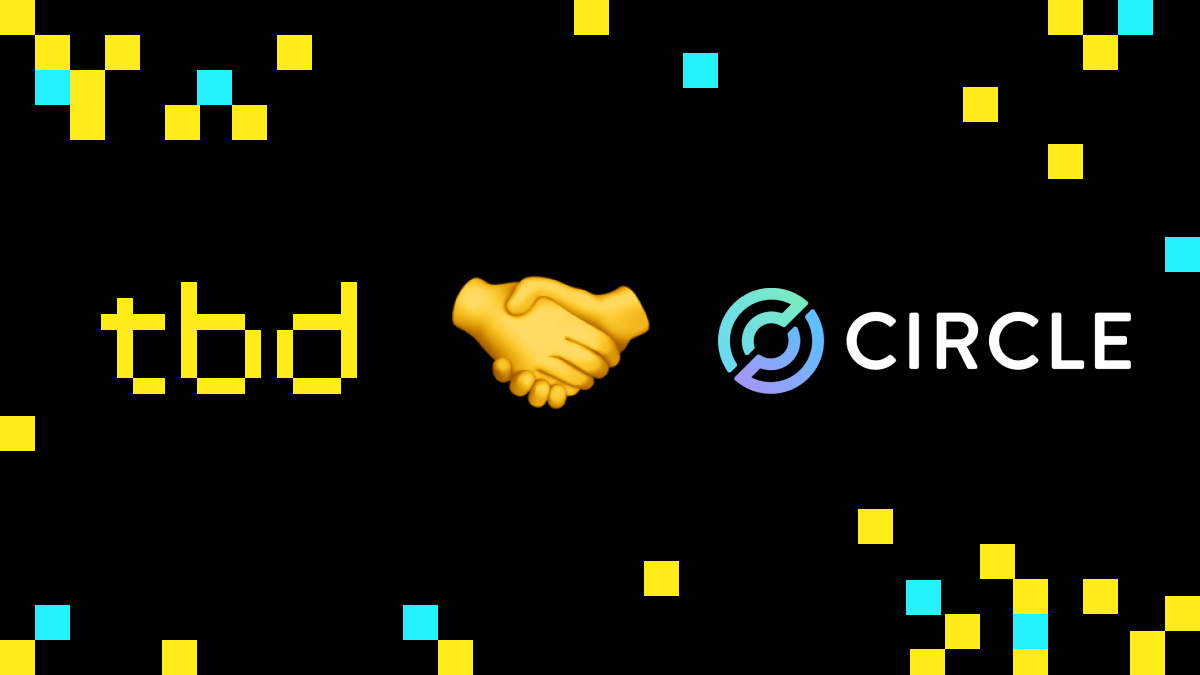 BLOCKCHAIN
BLOCKCHAIN
 BLOCKCHAIN
BLOCKCHAIN
 BLOCKCHAIN
BLOCKCHAIN
Jack Dorsey’s payment company Block Inc.’s subsidiary TBD announced Wednesday that it’s partnering with Circle Internet Financial Ltd., the issuer of the United States-dollar pegged stablecoin USD Coin, in order to give a boost to widespread global adoption of the cryptocurrency.
The two companies announced the partnership Wednesday during Circle’s Converge22 conference in San Francisco. As part of the team-up, TBD will support cross-border remittances and digital wallets that hold stablecoins as a first step.
“We’re partnering with [Circle] to solve some of our biggest money challenges, including decentralized, global on-and-off-ramps between fiat and crypto worlds that can power global use cases from cross-border remittances to self-custody of stablecoins,” TBD said in a tweet.
A stablecoin is a type of cryptocurrency that maintains a one-to-one parity with another currency, such as the U.S. dollar so that one token is always worth $1. Other cryptocurrencies such as bitcoin and Ethereum, the two largest by market cap, can be highly volatile, making it difficult for consumers and merchants to accept for payments and trade.
Block enables peer-to-peer money transfers through its mobile payment service Cash App, which also permits cryptocurrency payments. TBD was launched to build a decentralized cryptocurrency finance platform to make it easy for developers to work with cryptocurrencies called the tbDEX protocol and build the Web5 decentralized identity platform.
TBD sought the partnership with Circle to include USDC in order to make it easier for users who are used to traditional money to be more comfortable with cryptocurrencies as the lower volatility makes the more accessible.
The company said it would initially target the U.S.-to-Mexico remittances market. According to the Wilson Center, out of all the remittances arriving in Mexico, 94.9% came out of the U.S. during 2021. The top five recipient countries in 2021 of remittances from the U.S. included India, Mexico, China, the Philippines and Egypt.
Cross-border remittance systems have been explored by financial services for years, with varied success. Examples include Philippine money transfer company Bloom Inc.’s partnership with blockchain company Remiit Project. Mobile payments companies such as the peer-to-peer remittance company Remitly Inc., Philippine payment startup Coins.ph and Almond Finance have also built on the technology.
Cross-border remittance can be cumbersome and difficult for customers because it can be an extremely slow process, sometimes taking up to five days to send money through traditional channels. With its technology and the use of stablecoins to make cryptocurrency more accessible, TBD hopes to provide near-instant remittances across borders.
TBD will also provide with the ability to store stablecoins in their own wallets to become their own banks, the company said. The intent is to target countries that have high inflation where U.S. dollar-denominated currencies would retain significant value.
THANK YOU